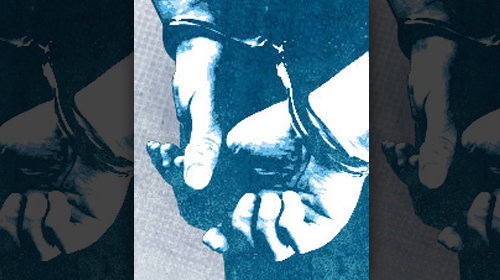
Earlier this week, the City of New Orleans and the U.S. Department of Justice (DOJ) . A consent decree‚ÄĚ is essentially a contract monitored by a judge to ensure that the terms of the agreement are met. This is the broadest such agreement in the DOJ's history, covering all aspects of the NOPD from recruitment and training to officer discipline. It will, literally, remake the NOPD and, we hope, remake the city of New Orleans.
This consent decree has been a long time coming. In the years since the post-Katrina flooding, we've seen highly publicized trials and convictions of police officers who engaged in horrific acts of violence, including killings, against innocent people ‚Äď and who then tried to cover up what they did. But the problems are older than that, and have run far deeper. For years the people of New Orleans have known that some police officers ‚Äď just a few, but a very damaging few ‚Äď used excessive violence against civilians, engaged in cover-ups of their own misconduct, and disrespected the fundamental rights of the people to engage in basic activities including photographing police activities. The NOPD has long lacked adequate facilities for dealing with the mentally ill, who comprise a disproportionate share of those in the criminal justice system. There has been insufficient respect for members of the LGBT community who seek police protection. Disciplinary procedures have been inadequate to deal with officers who simply won't follow the law.
Now, under federal oversight, the NOPD will implement new procedures for almost every aspect of its operations. There will be enhanced training and new training materials to be sure that every officer knows what the law is, what is expected of a police officer, and the consequences of violating procedures and the law. Officers will no longer be able to hire their own supervisors for lucrative private security work, as they have for years. The first obligation of every police officer will truly be to ‚Äúprotect and to serve.‚ÄĚ
While the people of New Orleans are rightly optimistic about these upcoming changes, they shouldn't have been necessary. The many hard-working, dedicated officers who for years have done their jobs well have been tarnished by the misconduct of the few bad actors. Still, every system can use improvement. New training for all officers will help the many good ones be better and more effective. Guidelines for police conduct will make it clear that officers may not lie, may not cover up their misdeeds, may not abuse the public ‚Äď and that stiff penalties will apply to those who do. All of this will make the city of New Orleans a safer and better place.
The consent decree remains in force for four years with extensions as needed. Many experts doubt that four years will be enough. It will cost as much as $11 million per year to implement, at a time when the city is strapped for cash and cutting other services. Some of that cost may be offset by an anticipated decline in lawsuits over police misconduct, but other sources of revenue must be found. This won't be easy and it won't be cheap ‚Äď but it is essential to the rights and the safety of the people of New Orleans.
It's too soon to know how things will unfold. The success of this consent decree, as any other agreement, will be in its implementation and enforcement. We're all still trying to understand this . The fact that this is the broadest such agreement in the history of the DOJ shows how much needed to be done in New Orleans. New Orleans is entitled to a police force that knows the law, obeys the law, and protects the community. With the help of the DOJ, we may now get what we deserve.
Learn more about police brutality: Sign up for breaking news alerts, r, and .

